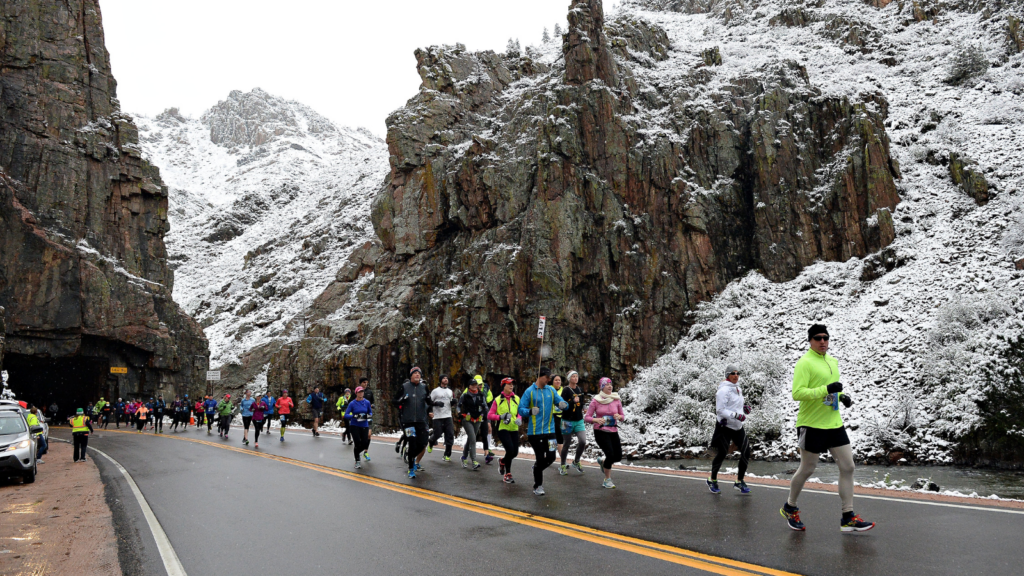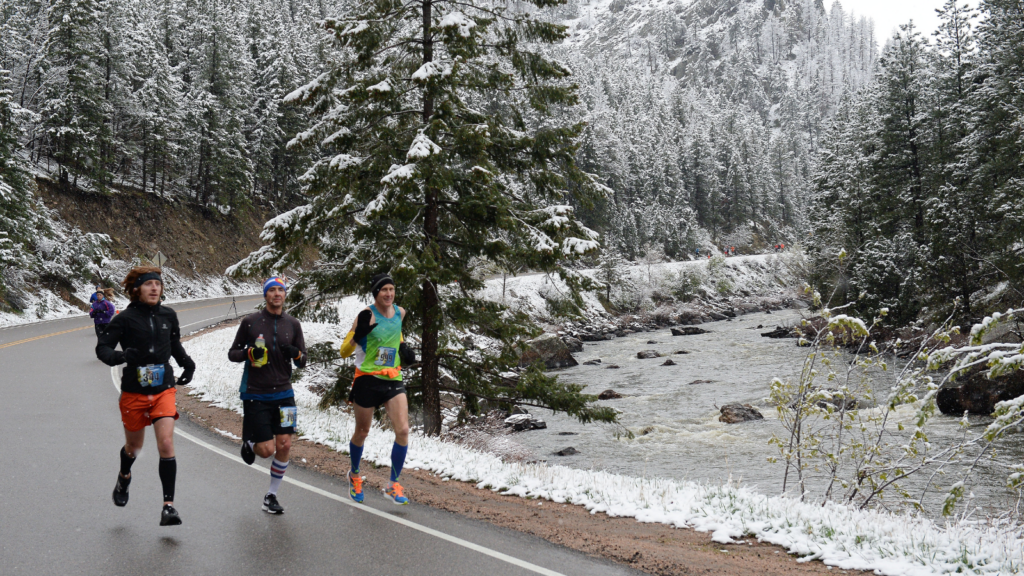Ah, winter. The snow is falling, the fireplaces are blazing, and your Colorado Marathon training schedule just got a lot tougher. But don’t worry—you can still run your best race in cold weather, as long as you use these tips to help you stay warm and motivated during those icy months.

Know Your Limits
It’s important to listen to your body when running in the cold – if it’s too cold for comfort, it might be time to switch up your workout plan instead of powering through. Consider trying activities like yoga, swimming, or strength training instead of running outdoors until the weather warms up again.
Layer Up
The key to running in cold weather is layering. Start with a base layer of wicking fabric (like polyester or nylon) that will draw sweat away from your body and keep you dry. Add an insulating middle layer (like wool or fleece) that will trap heat without making you too bulky. Finally, top off the whole outfit with a waterproof outer layer to keep rain and snow out while you brave the elements.
Protect Your Extremities
Your hands and feet are especially susceptible to frostbite when temperatures drop below freezing, so be sure to wear waterproof gloves and shoes that cover your ankles. You may also want to consider investing in some winter running socks for extra warmth on chilly days. Visit Runners Roost in Fort Collins, a race sponsor, for some great gear!

Stay Hydrated
It’s easy to forget about hydration when running in cold temperatures, but it’s just as important as ever. Dehydration can lead to fatigue and dizziness, which can significantly impair performance and put runners at risk of injury. So don’t forget to bring along a water bottle for sips during your run—it’ll help keep you hydrated and energized throughout the entire marathon training process!
Take Your Time
Finally, remember that winter runs tend to be slower than summer runs due to the colder temperatures and icy conditions they often present. That doesn’t mean they should be avoided—in fact, running in colder temperatures has been shown to increase endurance levels over time—but it does mean that runners should take their time and focus on form rather than speed during these winter months. This will help ensure that every mile counts towards race day success!
Cold weather training doesn’t have to be miserable—in fact, it can be downright enjoyable if you’re prepared with the right gear! So bundle up and hit the pavement—you’ll be crossing that finish line like a pro in no time! With these cold-weather training tips in mind, nothing can stop you from crushing your marathon goals this season!